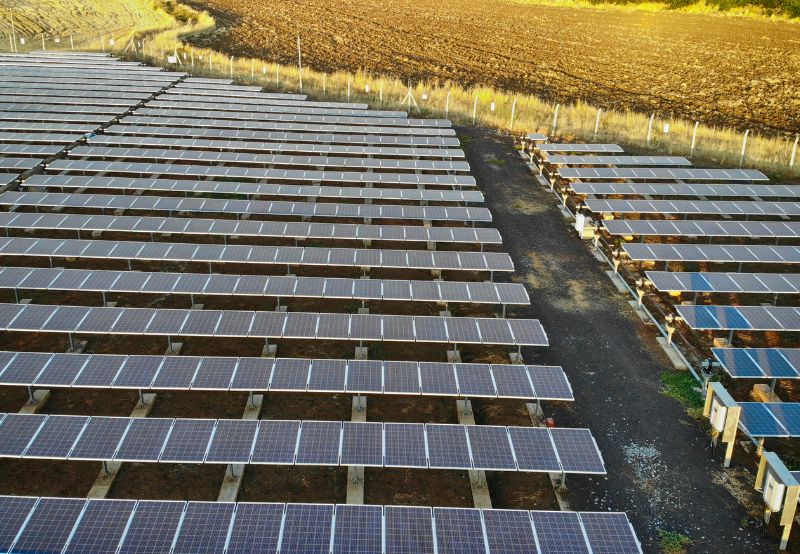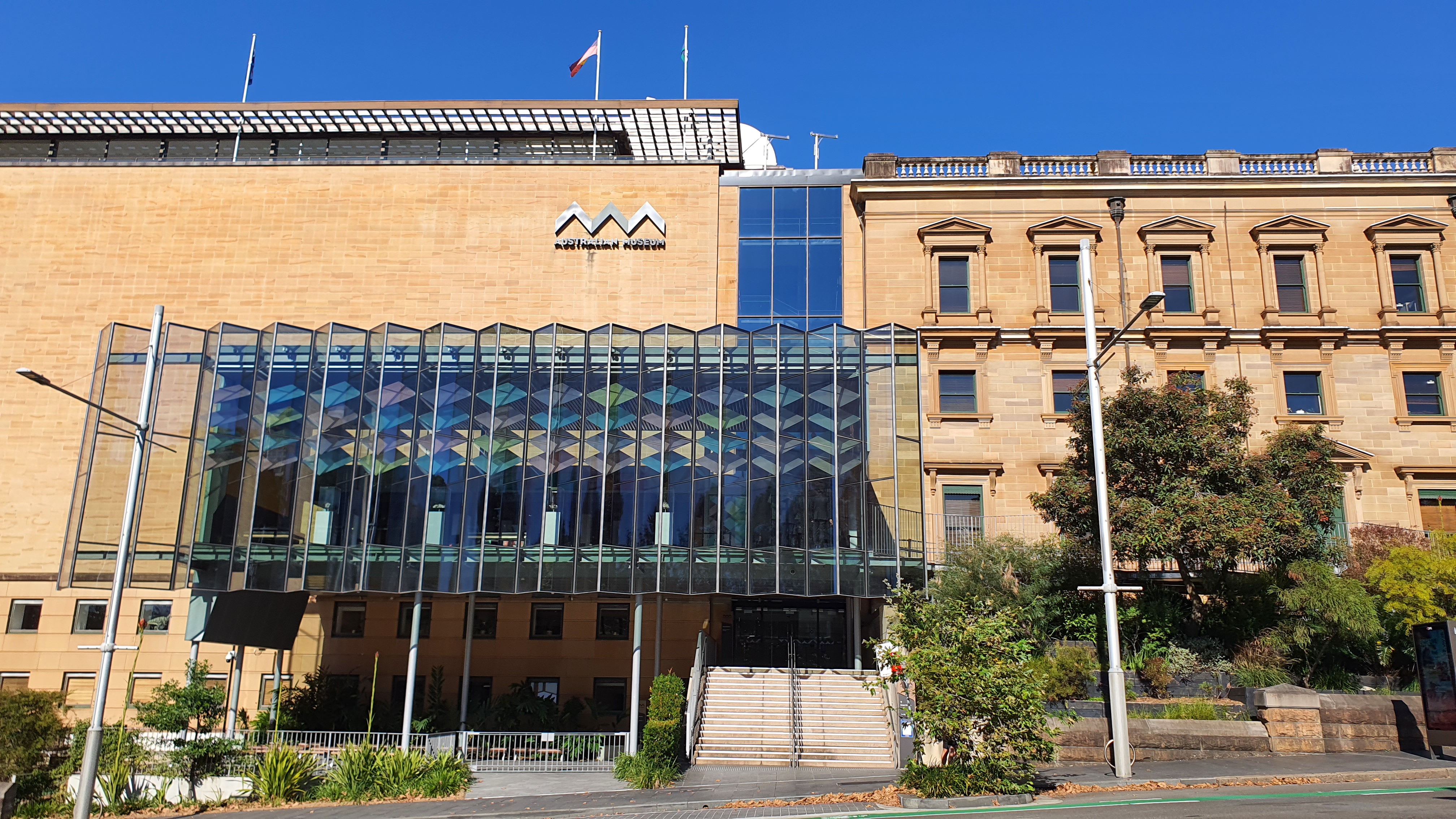Each year on 22 April we celebrate Earth Day – and this year we’re putting the spotlight on Sand to Green, an EBRD Star Venture programme beneficiary that is making waves in Morocco.
The company is addressing critical global challenges such as desertification, water scarcity and climate change by transforming arid lands into fertile grounds through innovative agroforestry and desalination techniques which support and bolster environmental protection.
Sand to Green’s approach not only promotes sustainable agriculture and biodiversity but also offers economic prosperity to local communities, making significant contributions to environmental sustainability and resilience against the impacts of climate change.
A trio sets the course
Sand to Green launched in April 2022 following four years of research, development and testing in the Moroccan desert.
Young Co-founder and CEO Benjamin Rombaut says, “From the outset, we observed significant achievements in vegetation growth, soil rehabilitation, food production and more. Recognising the potential for broader application, we founded the business with the aim of replicating and scaling up these types of solutions.”
The concept of utilising agriculture to combat desertification originated with Benjamin, who recognised that advancements in desalination technology, combined with the growing demand for food and biomass, could create new opportunities for agriculture in arid environments.
During his research, he met Gautier De Carcouët, a political science graduate who was pursuing biodiversity studies at AgroParisTech, and through their partnership with Enactus, an entrepreneurship network, they met Wissal Ben Moussa.
Wissal was already engaged in experimental agriculture on her family’s land in southern Morocco, which had been affected by desertification. She completed the trio, bringing practical experience and a deep understanding of both the challenges and potentials of desert cultivation.
The need to tackle desertification
One third of the Earth’s land surface is desert. Human activities and climate change are intensifying desertification, and millions of people continue to be hit by the effects every day as the rate of land degradation increases.
Addressing desertification through greening initiatives can regenerate biodiversity, mitigate the impacts of droughts and floods, create jobs and boost local economies. Restoring degraded land can also increase agricultural productivity and strengthen food security.
The merits are myriad – and from a business perspective, Benjamin says, “Landowners should switch to agroforestry because it offers numerous environmental and economic benefits. This sustainable land use system can enhance soil fertility, increase biodiversity, reduce erosion, and improve water retention.”
Economically, agroforestry can provide diversified income sources through the simultaneous production of multiple crops, including timber, fruit and feed, which can lead to increased resilience against market and climate volatility.
“Agroforestry can also generate additional revenue streams from carbon credits and ecosystem services,” adds Benjamin. “By optimising land use and creating more resilient agricultural ecosystems, agroforestry not only contributes to environmental sustainability but can also become a profitable model for landowners in the long term.”
Support from the EBRD’s Star Venture programme
According to Benjamin, seeking the support of the EBRD’s Star Venture programme in Morocco was driven by a desire to tap into the programme’s vast resources, expertise and network to accelerate Sand to Green’s growth and enhance its ability to counter desertification and climate change.
“The EBRD is recognised for its commitment to fostering innovation, sustainability, and economic growth in emerging markets, making it an ideal partner for start-ups like Sand to Green,” explains Benjamin. “Working with the EBRD offers significant advantages, including access to financial support and expert mentorship, as well as the opportunity to connect with a broad network of industry partners and stakeholders.”
Leveraging digital technologies
Sand to Green has developed an innovative software platform which plays a crucial role in the planning, management and monitoring of its agroforestry projects.
The software utilises data on soil, climate and the availability of water to simulate and implement effective agroforestry designs tailored to specific local conditions. The platform enables continuous monitoring and real-time adjustments, ensuring the success and sustainability of projects.
It also quantifies carbon capture for carbon credit purposes, combining economic and environmental benefits.
This digital approach facilitates the precise management of land resources, optimises the use of water through desalination processes, and ultimately supports the scalability and replication of Sand to Green’s agroforestry projects across different arid regions, making it a key driver of their business model and sustainability goals.
Joining forces at the ChangeNOW Summit
The 2024 ChangeNOW Summit in Paris brought together sustainability leaders from around the world who are invested in deploying practical and timely innovations to protect the planet.
Sand to Green Co-founder and Chief Agricultural Officer, Wissal Ben Moussa, says, “Attending the ChangeNOW Summit was a transformative experience, highlighting the critical need for sustainable innovation and the power of collective action in addressing global challenges. The event showcased groundbreaking technologies and solutions in areas such as renewable energy, sustainable agriculture and the circular economy, emphasising the role of innovation in combating climate change and environmental degradation. The summit reinforced our commitment to sustainable development and the urgency of implementing solutions that have a positive impact on the planet and society.”
Protecting people and planet
Across the deserts of southern Morocco, Sand to Green is harnessing the ancient wisdom of oasis science to combat desertification and transform barren landscapes. Through a combination of traditional knowledge and cutting-edge technology, the start-up is paving the way for sustainable agriculture in arid regions, offering a beacon of hope in the fight against desertification.
And this is no mirage. Agroforestry is not just about greening deserts: it is a powerful tool for ensuring food security and mitigating population displacement caused by desertification. Cultivating diverse crops alongside trees not only reclaims barren land but also provides sustenance for communities facing drought and famine.
As Sand to Green continues to expand, its positive influences on food security, job creation and environmental conservation promise to be profound, demonstrating the power of innovation in addressing pressing global challenges.
This Earth Day, let us recognise the role of agroforestry in nourishing both the land and its people, creating resilience in the face of environmental challenges and combating the growing threat of desertification.




